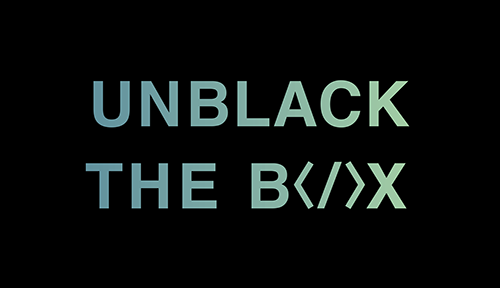SMASCH – Smarte Schulen is a project by Prof Dr Sigrid Hartong and Prof Dr Tobias Scheytt at the Helmut-Schmidt University Hamburg, which supports and mentors schools in developing concepts for digitisation that are sustainable, pedagogically relevant and needs-oriented and that have a purposeful and targeted effect in the mid and long term. Schools are understood as specific organisational contexts, and their complex characteristics serve as a starting point for digitisation. Accordingly, digitisation is not reduced to a matter of technical equipment but becomes a driver for sustainable school development. The UNBLACK THE BOX approaches are an important basis for a critical reflection of digitisation and datafication in educational practice in the SMASCH project.
Project objectives include:
- Enabling schools to critically reflect and assess effects of digitisation on teaching and the organization.
- Equipping pedagogical staff with tools to actively shape the development of their school in the context of digitisation.
- Demonstrating and developing alternative options / concepts for a creative, innovative design of digitisation – in digital as well as analogue formats.
- Implementing digitisation as an integrated building block of school development in the context of the entire school organisation.
- Generating research findings on the diverse effects and design options of digitisation in schools.
Are you interested in brand new and different presentations of proven alternatives to the pandemic-driven “high-speed digitising in education“? This certification course targets multipliers (trainers in initial and further teacher training, (media) advisers,…) who would like to provide support on how successful education processes in the digital age can take place WITHOUT the use of digital technologies. The courses addresses both nursery and kindergarten as well as primary school levels, where processes can be implemented in the work with parents and with children. The course began in October 2021 with an interdisciplinary team of lecturers, including UNBLACK THE BOX members.
https://www.bigdataliteracy.net/
The Critical Big Data and Algorithmic Literacy Network is an international network for researchers from all disciplines and practitioners who are interested in critical data literacy – education about big data and datafication. The network was founded in 2020 with the goal of promoting interdisciplinary dialogues about concepts and concrete approaches for a critical data education and strengthening the exchange between theory and practice.
On its website, the network provides a glossary for digital sovereignty (‘Glossar Digitale Souveränität’), which explains core terms in the area of data, digitisation and media education. The CBDAL Network has further developed a freely accessible database for ‘critical data literacy resources‘. The database includes websites, games, videos, teaching material and many more resources for a critical education about data. It can be filtered by topics, languages, formats and target groups. This database in particular offers a valuable collection for the educational approaches of UNBLACK THE BOX.



